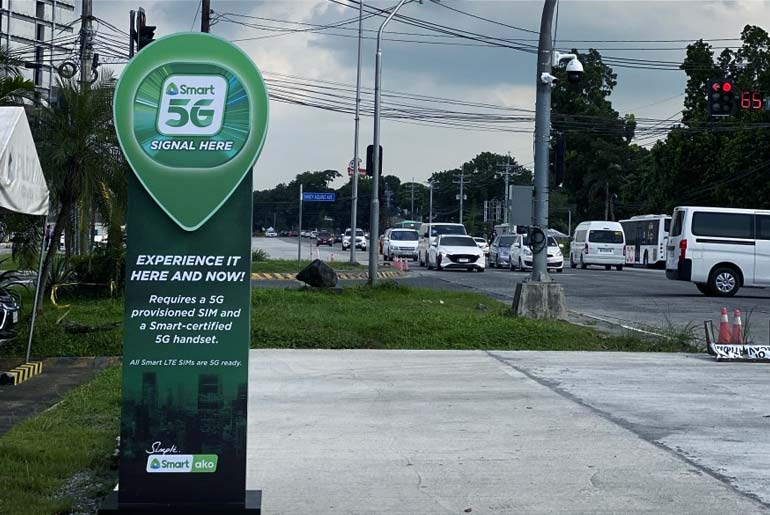Realme 7 vs Redmi Note 9 Pro - Specs Comparison - Android
Midrange phones have become so powerful that there’s almost no point to go with a more expensive high-end device. Even the below-Php15,000 smartphones in the market have become real capable and today, we’ll be comparing two of your best option for the price. First, we have the Realme 7. Its official SRP in PH is […] More
This article, Realme 7 vs Redmi Note 9 Pro: Specs Comparison, was originally published at NoypiGeeks | Philippines Technology News, Reviews and How to's.
Midrange phones have become so powerful that there’s almost no point to go with a more expensive high-end device. Even the below-Php15,000 smartphones in the market have become real capable and today, we’ll be comparing two of your best option for the price.
First, we have the Realme 7. Its official SRP in PH is yet to be announced (we’ll be updating this article once it does), but we expect it to pass the budget you’re after — just like its predecessor.

And considering what we already know when it came out in India earlier this month, it should offer a couple of interesting value for the price.
But is it really the device you should go with? To answer that, we’ll be comparing it with the Redmi Note 9 Pro — one of the best options in this category that came out back in May.

Here in our Realme 7 and Redmi Note 9 Pro specifications and features comparison, we’ll see if Realme’s latest can beat Xiaomi’s midranger. Ultimately, we’ll help you decide which one you should get. Let’s begin.
| Realme 7 | Redmi Note 9 Pro (Global) | |
| Operating System | Android 10 Realme UI | Android 10 MIUI 11 |
| SIM | Dual SIM Dual Standby | Dual SIM Dual standby |
| Display | 6.5-inch FHD+ IPS 2400 x 1080 pixel resolution 405ppi 90Hz refresh rate TÜV Rheinland certified | 6.67-inch FHD+ IPS 2400 x 1080 pixel resolution ~394ppi TÜV Rheinland certified |
| Processor | 2.05GHz MediaTek Helio G95 octa-core Superb Carbon Fiber Cooling System | 2.3GHz Qualcomm Snapdragon 720G octa-core |
| RAM | 6GB/8GB | 6GB |
| GPU | Mali-G76 MC4 | Adreno 618 |
| Storage | 64GB/128GB UFS 2.1 expandable via microSD | 64GB/128GB UFS 2.1 expandable via microSD up to 512GB |
| Front Camera | 16-megapixel Punch-hole 120fps slow-mo selfie | 16-megapixel Punch-hole 120fps slow-mo selfie |
| Rear Camera | 64-megapixel (IMX682, f/1.8, PDAF) 8-megapixel (ultra-wide, f/2.3) 2-megapixel (mono) 2-megapixel (macro) AI Scene Detection 4K video recording Night Mode 240fps | 64-megapixel (IMX686, f/1.9) 8-megapixel (ultra-wide, f/2.2) 5-megapixel (macro) 2-megapixel (depth sensor) PDAF LED flash AI Scene Detection 4K video recording Ultra Nightscape mode 960fps@720p slow-mo |
| Audio | Headphone jack Single speakers | Headphone jack Single Ultra-linear speaker |
| Security | Side-mounted fingerprint scanner Face unlock | Side-mounted fingerprint scanner Face unlock |
| Connectivity | HSPA+, 4G LTE WiFi 802.11 a/b/g/n/ac, dual-band Bluetooth 5.0 GPS, A-GPS, BDS, GLONASS USB Type-C | 4G LTE, VoLTE WiFi 802.11 a/b/g/n/ac, dual-band, 2×2 MIMO Bluetooth 5.1 GPS, A-GPS, Galileo, GLONASS, BDS, NavIC NFC IR blaster USB Type-C |
| Dimensions | 162.3 x 75.4 x 9.4mm | 165.75 x 76.68 x 8.8mm |
| Weight | 196.5g | 209g |
| Body | Front: Corning Gorilla Glass 3 Back: Frosted AG Frame: Plastic Splash-proof | Front: Corning Gorilla Glass 5 Back: Corning Gorilla Glass 5 Frame: Plastic P2i splash proof |
| Colors | Mist Blue Mist White | Tropical Green Glacier White Interstellar Black |
| Battery | 5,000mAh 30W SuperDart Charge | 5,020mAh 30W fast charging support 33W fast charger included |
| Price | 6GB/64GB: INR14,999 (~Php9,900) 8GB/128GB: INR16,999 (~Php11,200) (Before PH taxes) | 6GB/64GB: Php12,490 6GB/128GB: Php13,990 |
Design and Build Quality
As usual, Realme has come up with a brand new design for the Realme 7 series. This time, they are much cleaner and straightforward. It has a split design, with light reflections in this AG frosted glass.
 Mist Blue | Mist White
Mist Blue | Mist WhiteAvailable in Mist Blue and Mist White, there’s a vertical strip is in the left corner of the screen that transcends the vertical camera glass on the back and the Realme logo on the bottom. While on the front, we have an almost bezel-less screen with a punch-hole on the top left.
The Redmi Note 9 Pro also has a clean design — with a middle punch-hole on front and 2×2 camera layout on the back — but shares its looks with a couple of other Xiaomi devices like the Redmi Note 9S. Unlike the split design of the former, this has a uniform, paint job that’s available in more color options: Interstellar Grey, and Glacier White, with the exemption of the Tropical Green option.
 Glacier White | Interstellar Grey | Tropical Green
Glacier White | Interstellar Grey | Tropical GreenWhat makes it stand out is the build. It’s sandwiched with Gorilla Glass 5, while the Realme 7 has an inferior Gorilla Glass 3 on the screen and an unbranded Frosted AG on the back. On the upside, both are splash-proof and comes with a free protective case for extra peace of mind.
Display and Sound Quality
Both devices use an FHD+ IPS panel, a standard choice for a device this price. However, the Redmi Note 9 Pro is marginally bigger at 6.67-inches, vs 6.5-inches. Albeit, the difference might be, again, marginal and unnoticeable.

However, the Realme 7 obviously wins this round. As you can see, it has a 90hz refresh rate, which will make games and browsing the interface smoother and more responsive.
To compensate, the Redmi Note 9 Pro has an ultra-linear speaker, while the former has a standard bottom-firing speaker. It would be nice to see a stereo speaker setup on both devices, but plugging in a pair of earphones via the 3.5mm port should be enough. By the way, neither comes one, so you might want to get it separately.
Performance and Hardware
The Realme 7 is powered by the latest MediaTek Helio G95 processor, while the Redmi Note 9 Pro relies on Qualcomm Snapdragon 720G.

As per the last AnTuTu top list, last-gen’s Helio G90T is still more powerful than the Snapdragon 720G. And considering that the Helio G95 is an overclocked version of the G90T, it should have faster performance in most tasks, especially in games.
It may fall behind benchmarks, but the Snapdragon 720G should offer better battery efficiency and compatibility with most apps.

The Redmi Note 9 Pro also has better connectivity features like the newer Bluetooth 5.1 standard, NFC, and the Xiaomi standard-issue IR blaster.
Related
- POCO X3 NFC vs Realme 7: Specs Comparison
- POCO X3 NFC vs Redmi Note 9 Pro: Specs Comparison
Cameras
Both the Realme 7 and Redmi Note 9 Pro have similar 64-megapixel main cameras and 8-megapixel ultra-wide. They also share the same 16-megapixel front-facing cameras, with a cool 120fps slow-mo selfie recording that’s fun to play with.

But, we gotta hand the win to the Xiaomi device on this one.
As you can see, it has a better IMX686 main sensor and a sharper 5-megapixel macro camera. It also has an impressive 960fps slow-mo video recording, which we only saw on high-end smartphones before.
Battery
The Redmi Note 9 Pro wins by a margin on this category. As you can see, it has a 5,020mAh battery, which is an inch larger than the 5,000mAh on the latter.

Both devices also have 30W fast charging support. But with the Redmi device, you’re getting a faster 33W charger in the box for extra headspace.
Conclusion
The Redmi Note 9 Pro starts at Php12,490 for the 6GB/64GB model, while the 128GB is at Php13,990 — no 8GB option. As for the Realme 7, we expect the 8GB/128GB model to arrive in the Philippines for around Php14k to Php15k, just like the Realme 6. The 6GB/64GB variant should be Php2,000 cheaper.

So, which one should you get? As you can see, they do share a lot of similarities. However, the 90Hz screen and supposedly better performance of the Realme 7 makes it a more viable option for heavy gamers.
But if you want a balance between battery efficiency and performance — and if the camera and build quality is a top priority — then going with the Redmi Note 9 Pro might be a better idea.
This article, Realme 7 vs Redmi Note 9 Pro: Specs Comparison, was originally published at NoypiGeeks | Philippines Technology News, Reviews and How to's.
29/09/2020 02:29 AM
Microsoft services hit by outage
29/09/2020 12:54 AM
OPPO Reno4 with 48MP quad camera - Specs rundown
29/09/2020 09:15 AM
Facebook Messenger Kids is now available in the Philippines
29/09/2020 08:20 AM
Cherry officially unveils its own ecosystem of brands, products
29/09/2020 10:21 AM
Smart fires up 5G in Boracay, Cebu, Iloilo + Davao
29/09/2020 01:36 AM
CHERRY ecosystem launches in the Philippines
29/09/2020 07:00 AM
Cherry Ion Lite Limited Edition Hands-on
29/09/2020 07:52 AM
- HEALTH
- Comics
- Libraries & Demo
- Sports Games
- Racing
- Photography
- Transportation
- Media & Video
- Sports
- Health & Fitness
- Weather
- Medical
- Cards & Casino
- Arcade & Action
- Personalization
- Social
- Communication
- Productivity
- Casual
- Shopping
- Tools
- Brain & Puzzle
- Business
- News & Magazines
- Finance
- Lifestyle
- Music & Audio
- Entertainment
- Travel & Local
- Books & Reference
- Education






